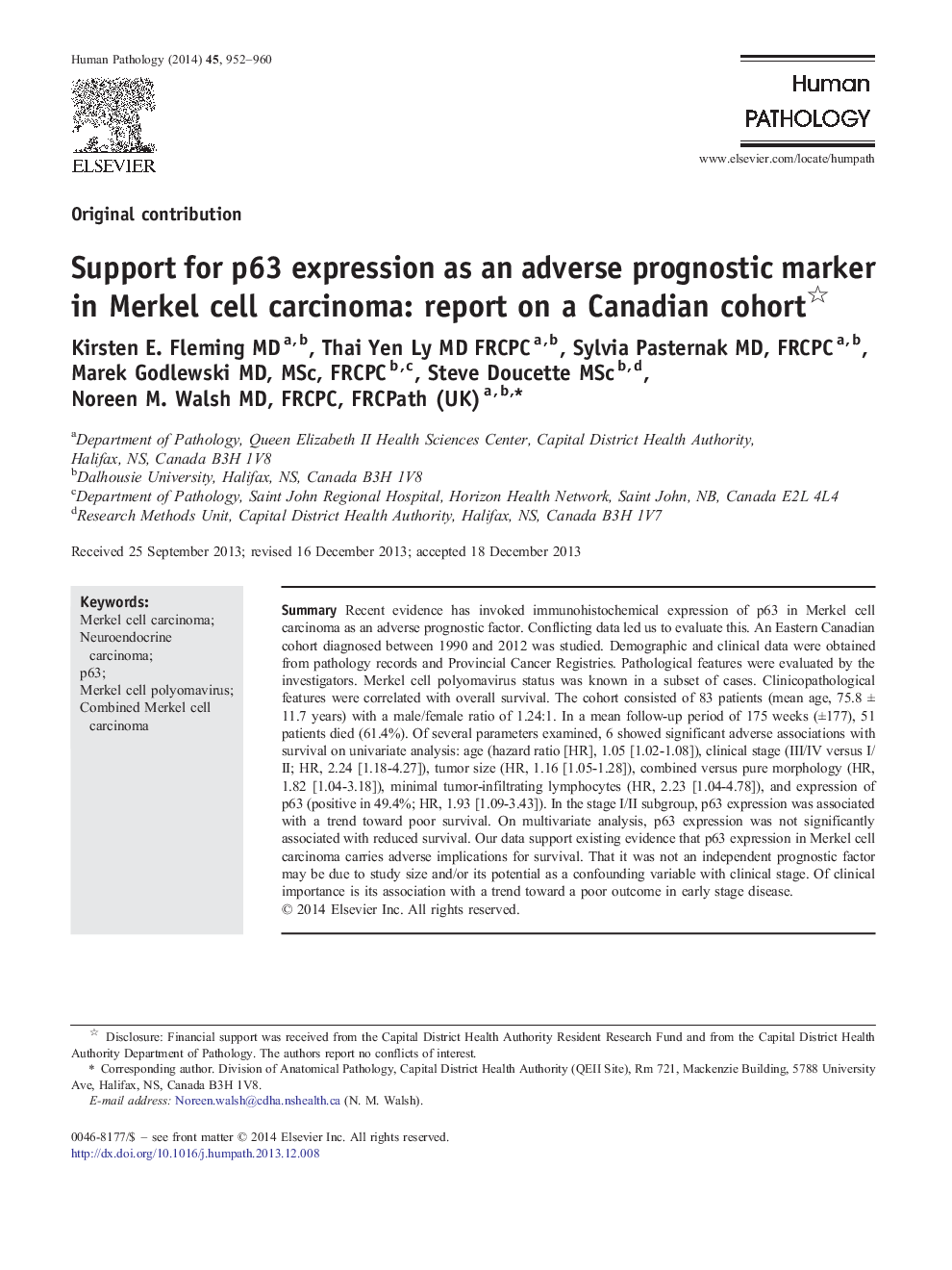| Article ID | Journal | Published Year | Pages | File Type |
|---|---|---|---|---|
| 6216091 | Human Pathology | 2014 | 9 Pages |
SummaryRecent evidence has invoked immunohistochemical expression of p63 in Merkel cell carcinoma as an adverse prognostic factor. Conflicting data led us to evaluate this. An Eastern Canadian cohort diagnosed between 1990 and 2012 was studied. Demographic and clinical data were obtained from pathology records and Provincial Cancer Registries. Pathological features were evaluated by the investigators. Merkel cell polyomavirus status was known in a subset of cases. Clinicopathological features were correlated with overall survival. The cohort consisted of 83 patients (mean age, 75.8 ± 11.7 years) with a male/female ratio of 1.24:1. In a mean follow-up period of 175 weeks (±177), 51 patients died (61.4%). Of several parameters examined, 6 showed significant adverse associations with survival on univariate analysis: age (hazard ratio [HR], 1.05 [1.02-1.08]), clinical stage (III/IV versus I/II; HR, 2.24 [1.18-4.27]), tumor size (HR, 1.16 [1.05-1.28]), combined versus pure morphology (HR, 1.82 [1.04-3.18]), minimal tumor-infiltrating lymphocytes (HR, 2.23 [1.04-4.78]), and expression of p63 (positive in 49.4%; HR, 1.93 [1.09-3.43]). In the stage I/II subgroup, p63 expression was associated with a trend toward poor survival. On multivariate analysis, p63 expression was not significantly associated with reduced survival. Our data support existing evidence that p63 expression in Merkel cell carcinoma carries adverse implications for survival. That it was not an independent prognostic factor may be due to study size and/or its potential as a confounding variable with clinical stage. Of clinical importance is its association with a trend toward a poor outcome in early stage disease.
